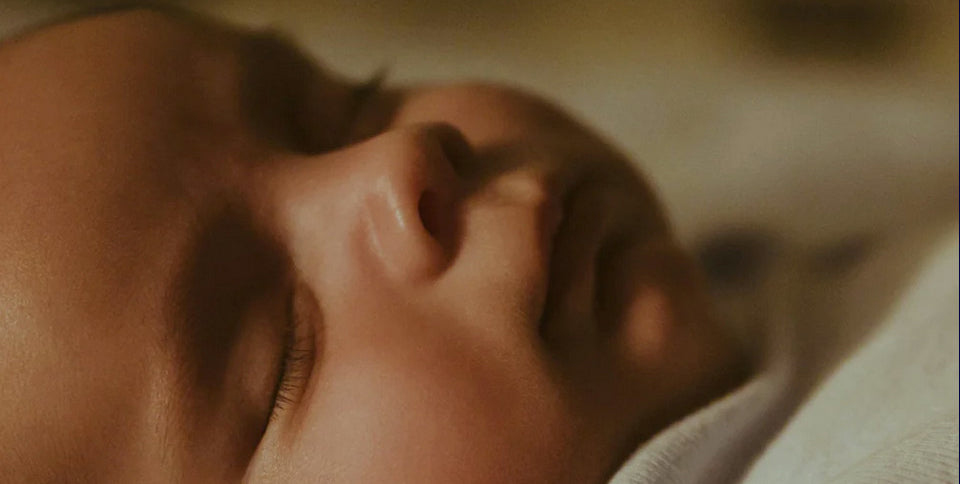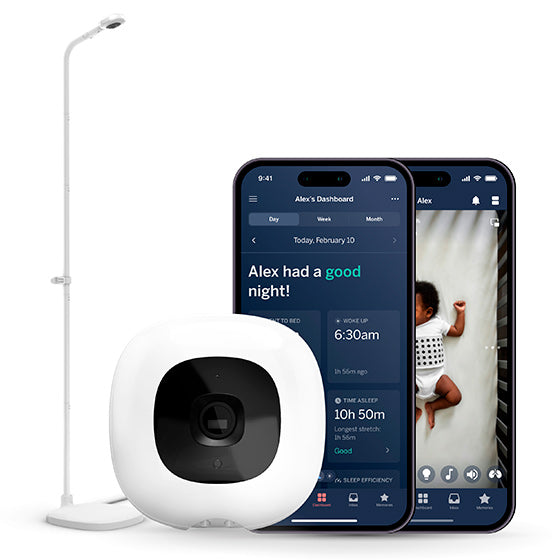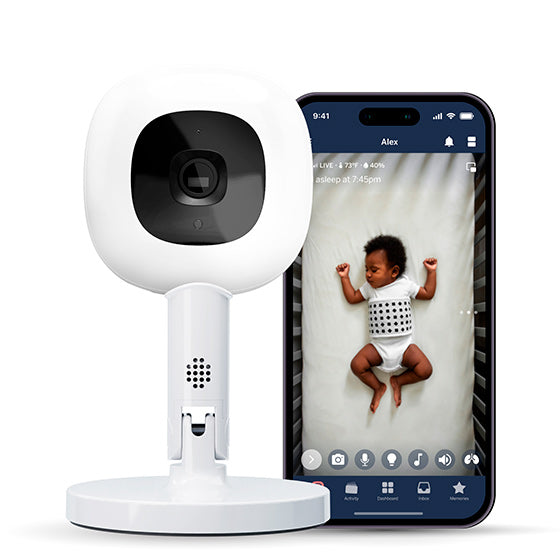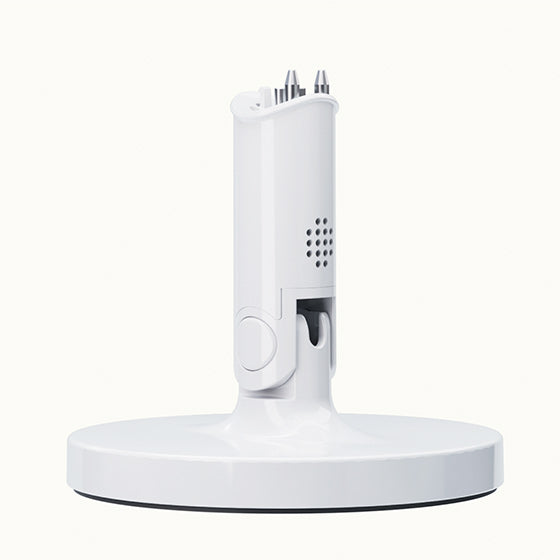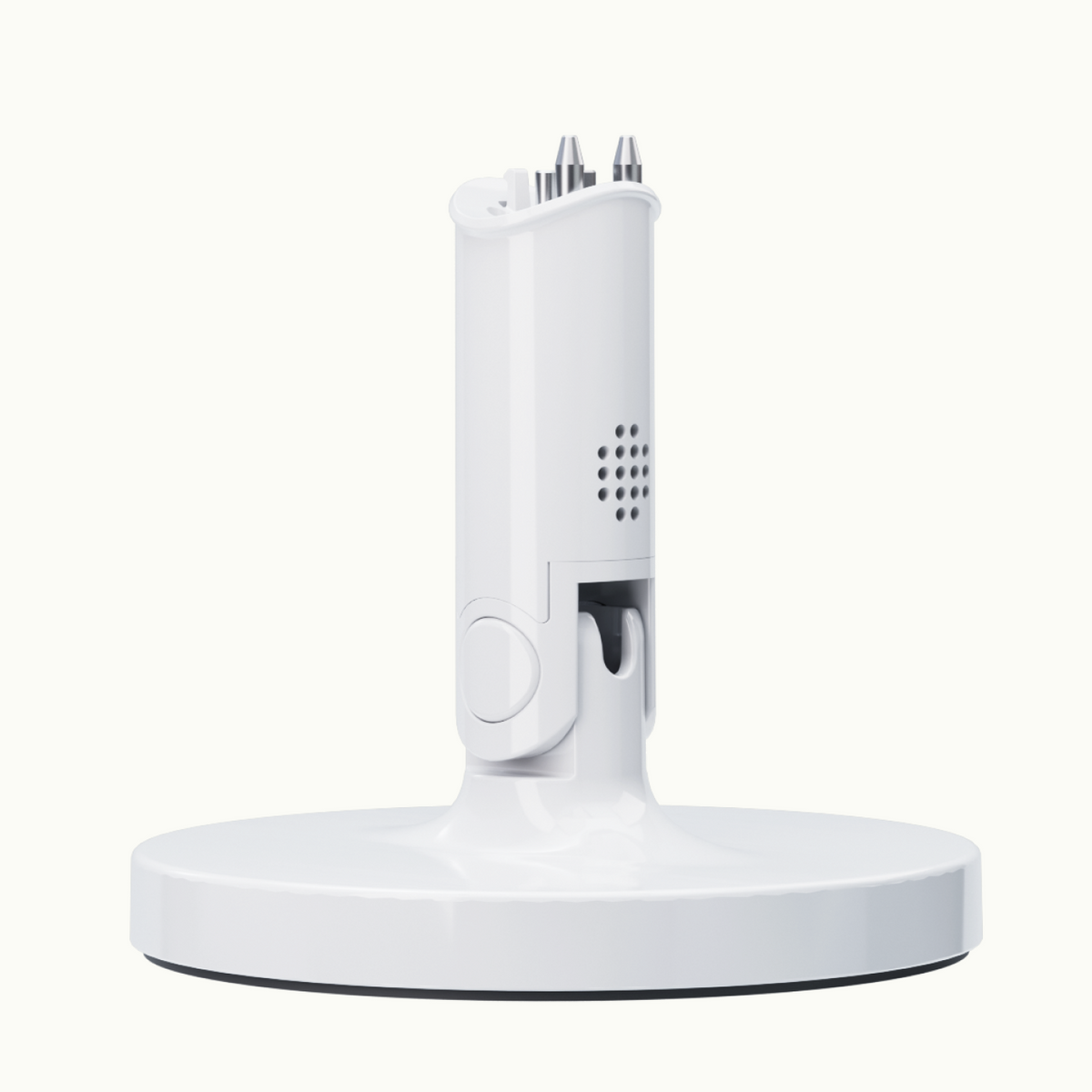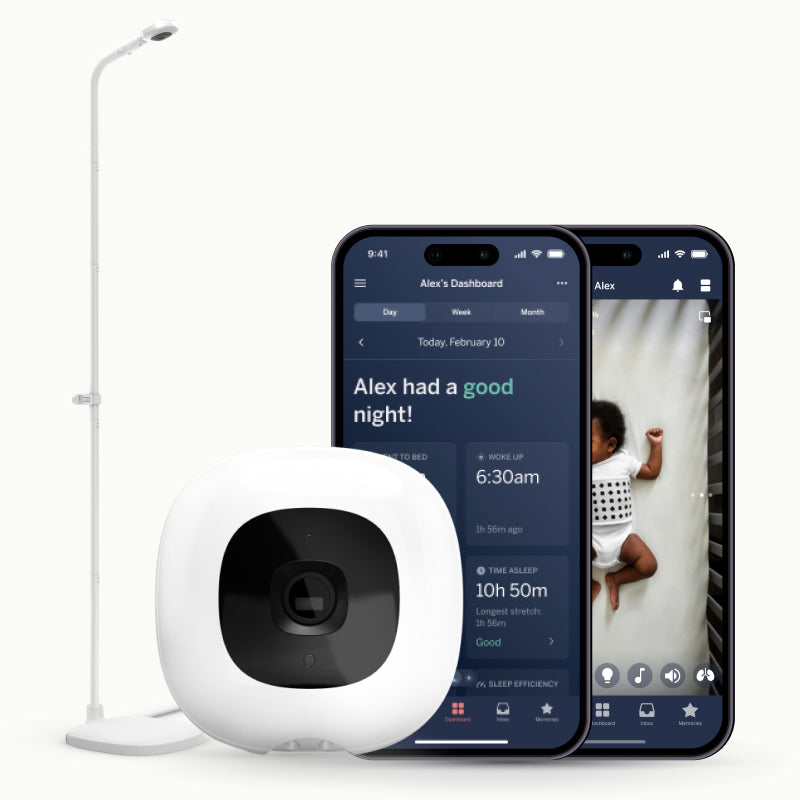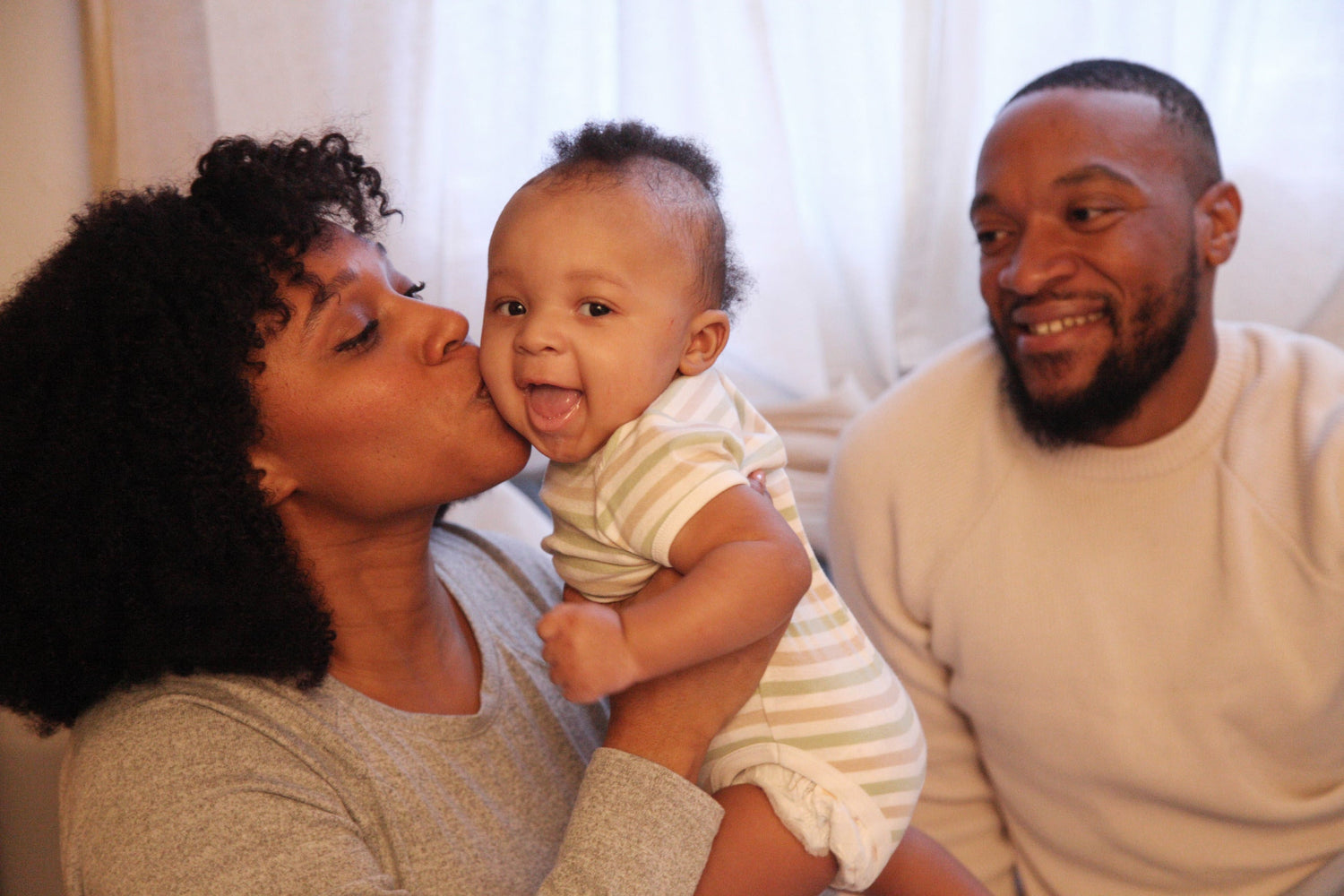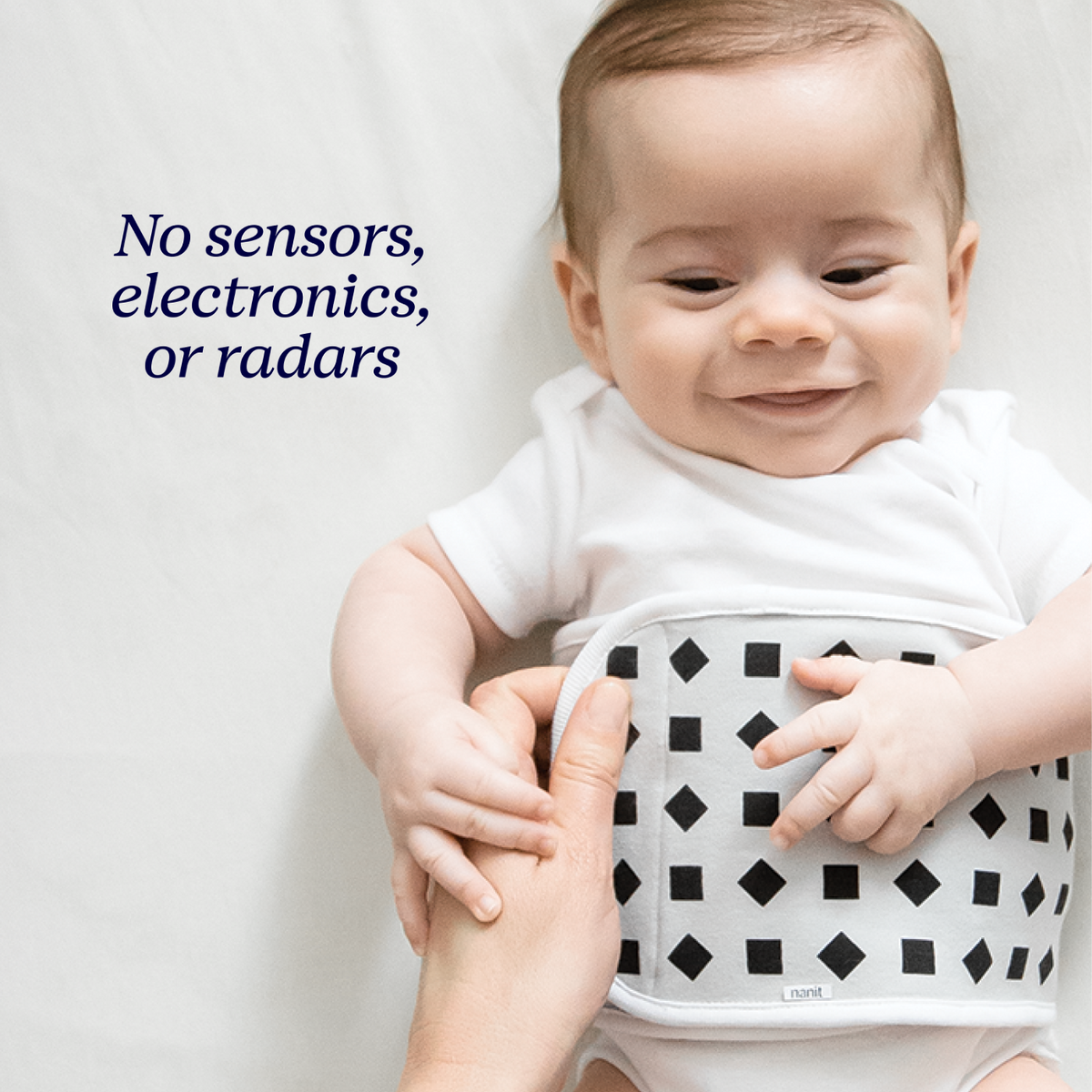When you bring your newborn baby home, it can be an overwhelming (and scary) experience. You find yourself faced with the challenges of new parenthood, navigating a steep learning curve and the uncertainties that come with caring for a fragile little life.
A few days into your parenthood journey, you’ll realize that the sailing is not as smooth as you had anticipated. In particular, your tiny new roommate does not adhere to universal sleep guidelines. They’re up at random hours of the day and night.
This may leave you wondering, “How much sleep do new parents get?”
The honest answer? Not much, but the good news is that this seemingly sleepless lifestyle won’t last forever, and we’re here to provide you with a few tips on how to deal with sleep deprivation as a new (or new again) parent.
Sleep Deprivation 101
In the weeks leading up to a baby's birth, we often have romanticized imaginings of how picturesque parenthood might be. For instance, you might envision your newborn baby latching like a champ before leaving the hospital, and you may even expect to have a somewhat established routine of feeding and sleeping by the end of the first week.
The reality, however, often differs—especially in terms of sleep. Unless you and your partner are taking shifts, chances are you won't be sleeping more than one to two hours at a time after your newborn comes home. Instead, you'll be on 24-hour duty, feeding and changing your baby whenever they wake.
While this routine may seem sustainable for a few weeks, you'll quickly realize how crucial sleep becomes for new parents. Without it, sleep deprivation can subtly creep into your life.
Put simply, sleep deprivation occurs when you don’t receive a healthy amount of sleep. What’s considered “healthy?” For adults, adequate sleep equates to about seven hours a day (this varies from person to person, some people need more, some people less). While you might be taking naps that add up to six or seven hours daily, those fragmented periods of sleep can start to take a toll.
Once sleep deprivation sets in, it can affect your daily life in multiple ways. Common symptoms of sleep deprivation include:
- Mood changes, such as increased stress, anxiety, and irritability
- Slower thought processes
- Shortened attention span
- Impaired decision-making abilities
- Memory lapses
Newborn sleep habits and stages
The symptoms associated with sleep deprivation are certainly not the traits new parents want to exhibit, especially when caring for their little ones. While you can rest easy knowing that your sleep deprivation is only temporary, that probably won’t stop you from googling, “How long do sleepless nights last with a newborn?” in the middle of the night.
While there’s no one-size-fits-all answer to that question, you can expect newborn babies to feed every few hours, night and day, until they reach about three months. After that, they’ll probably begin sleeping for longer periods at night.
Keep in mind that some babies begin sleeping for longer stretches sooner than others. So, if your friend tells you her four-month-old is sleeping a solid six-hour stretch at night, don’t take it to heart if yours is only sleeping three or four hours at a time. They’ll get there soon enough.
Until they’ve surpassed three months of age, babies will only have two stages in their sleep cycle:
- Active sleep. This is also known as rapid eye movement (REM) sleep. During this stage, you may notice fluttering eyes, twitching limbs, noisy breathing, or even the occasional cry. Don’t worry, they’re still asleep. It’s just a lighter form of sleep than the quiet sleep.
- Quiet sleep. Also known as non-rapid eye movement (NREM) sleep, this stage of sleep is deeper than active sleep. When your baby is in the middle of NREM sleep, they’re generally more still and appear more peaceful.
Additionally, newborns experience shorter sleep cycles than adults, with each cycle typically lasting about 20 to 50 minutes. This is why newborns wake up more frequently than older babies who go through four sleep stages and can sleep for longer stretches.
As your baby grows, they’ll gradually learn to self-soothe and return to sleep after completing one sleep cycle.
How to cope with sleep deprivation
Although the newborn phase is short, it’s helpful to adjust your nighttime sleep expectations during this brief time. Here, some tips on coping with sleep deprivation to help keep you afloat until those longer, glorious sleep windows begin to take effect:
- Go for a walk. If you’re exhausted, going for a walk might sound like the opposite of what you really want to do. However, a little sunlight and fresh air can go a long way. As a bonus, the sun can offer you and your little one a fresh dose of vitamin D and help them regulate their circadian rhythm.
- Practice saying no. Family and friends may be flocking over by the carload to see your bundle of joy. However, if you’re feeling overwhelmed with all of your new responsibilities, there’s nothing wrong with saying no if they ask to drop in for a visit.
- Ask for help. If you do have people come over, it’s OK to ask them to help in some capacity. From folding laundry to watching the baby sleep while you take a luxuriously long, hot shower, utilize those extra helping hands. Wild as it seems, you might even be able to squeeze in a nap (don’t laugh!).
- Pay attention to baby cues. Fluctuations in your baby's sleep patterns are normal and can be influenced by several factors, such as developmental milestones, disruptions in their routine, illnesses, and more. It’s important to remain attentive to their sleep cues and maintain a consistent routine as much as possible to manage sleep deprivation. Recognizing sleep cues vs. hunger cues can also be particularly helpful.
- Take a break. While you may want to pick up the burp rags, onesies, and other baby items lying around each time your baby naps, remember to give yourself some grace and the occasional break. If you’re tired, please nap. If you want to finally watch those shows you haven’t had time for, that’s relaxing, too.
- Take night shifts. Consider splitting up the nighttime routine with your partner. For instance, you can rotate nights where one of you sleeps and the other is with the baby for the night. You may even want to switch halfway through the evening—it all comes down to what works best for both of you. However, keep in mind that whatever schedule you make, the key is to sleep in a separate room from your partner and the baby when you’re “off duty” so that you can get a restful night of sleep.
- Practice helpful sleep habits before bed. Adopting a few healthy habits can ensure you make the most out of the shuteye you do get. Consider:
- Getting some movement in during the day (e.g. a brisk walk with the stroller) can help you sleep better at night
- Creating a consistent sleep schedule and striving to stick to it within a one-hour window every night
- Make your bed a comfy place to help you sleep and perhaps invest in new bedding. If ever there was a time that you deserve to upgrade, now is the time!
How Nanit can provide peace of mind
We understand that turning off your anxiety and getting a full night of sleep is easier said than done. As a parent, it's natural to wake up and worry about your little one. Are they sleeping soundly? Are they too cold? Are they breathing all right?
While these intrusive questions roam around in your mind rent-free, they’re completely normal. Thankfully, with Nanit by your side, you can sleep comfortably knowing that your little one is doing the same.
Our baby monitor diligently monitors your baby from the moment you lay them down to sleep until the moment you pick them up post-snooze. Its camera and built-in machine-learning capabilities work tirelessly to ensure your baby's safety. From tracking their breathing and sleep patterns to monitoring their temperature throughout the night, the Pro Camera provides you with a wealth of information so that you and your baby can both sleep soundly.
Plus, you can easily check your baby’s stats and watch them sleep through the Nanit App on your phone, all without leaving the comfort of your bed.
After a night of your own restful sleep, you can pull up the app again to learn about your little one's nighttime sleep with features such as:
- Nightly (and daytime) sleep summaries
- Video history
- Age-related tips
- Personal sleep achievements
Sleep soundly with Nanit
Creating the ultimate parent sleep schedule with newborn might not always be attainable in those first few months, but with a little help from your partner, your loved ones, and Nanit, you’ll be one step closer to saying goodbye to sleepless nights.
Become part of 71% of other Nanit users who said they felt less anxious after using our products. Invest in peace of mind and experience the restful nights you and your baby deserve. Shop Nanit today for better sleep and a brighter tomorrow.
Key takeaways
- Sleep deprivation can affect new parents with fragmented sleep schedules, causing mood changes, slower thinking, shorter attention spans, impaired decision-making, and memory lapses.
- Newborns experience two sleep stages, active and quiet sleep, in short cycles of 20 to 50 minutes. As they grow, they’ll learn to self-soothe and sleep for longer periods.
- To cope with sleepless nights, consider adopting soothing strategies such as going for walks, asking for help, taking breaks, rotating night shifts with your partner, and practicing helpful sleep habits before bedtime.
Sources:
Sleep Foundation. Sleep Deprivation: Understanding the Hidden Consequences. https://www.sleepfoundation.org/sleep-deprivation
Medical News Today. When do babies sleep through the night? Tips and guidance. https://www.medicalnewstoday.com/articles/when-do-babies-sleep-through-the-night
Better Health. Typical sleep behaviour (1) – newborns 0 to 3 months. https://www.betterhealth.vic.gov.au/health/healthyliving/typical-sleep-behaviour-nb-0-3-months#newborn-sleep-cycles
NIH. PERSPECTIVE: The Long-Term Effects of Light Exposure on Establishment of Newborn Circadian Rhythm. https://www.ncbi.nlm.nih.gov/pmc/articles/PMC6175794/
Pediatric Sleep Counsel. Dear husband, I love you, but right now I hate you for sleeping. https://www.babysleep.com/news/dear-husband-i-love-you-but-right-now-i-hate-you-for-sleeping/